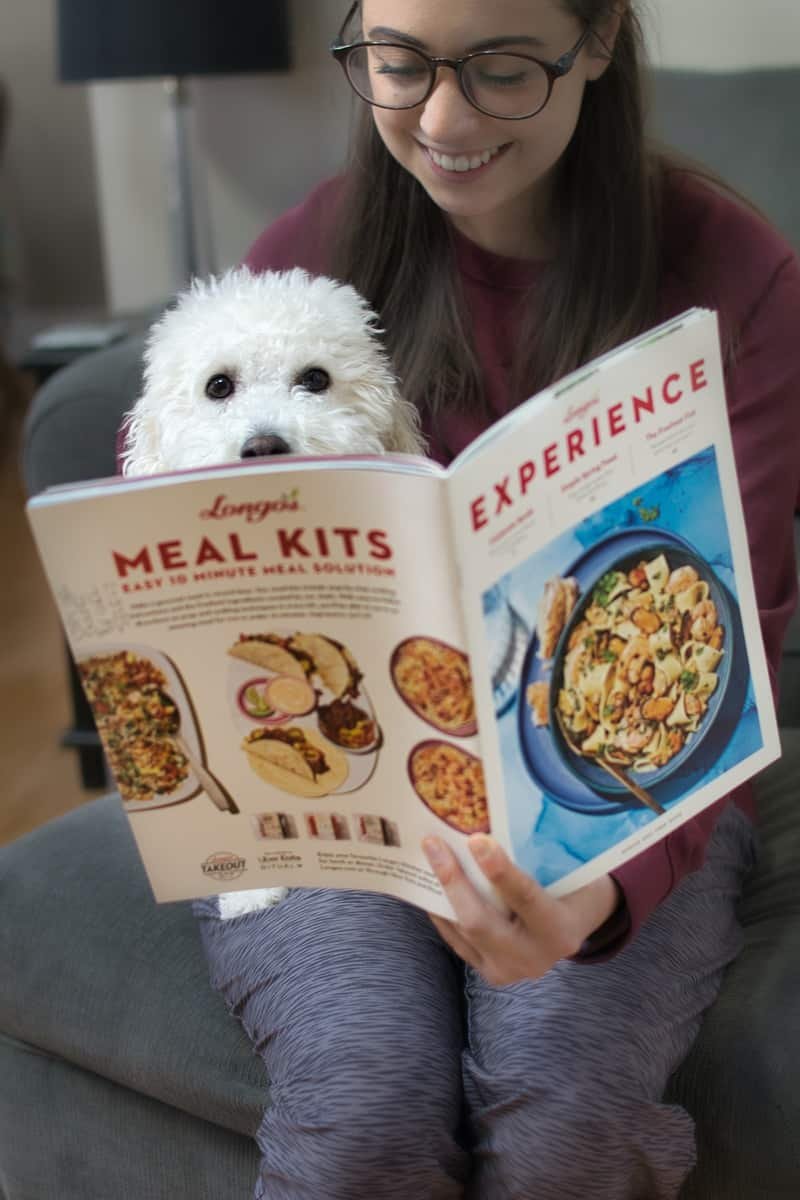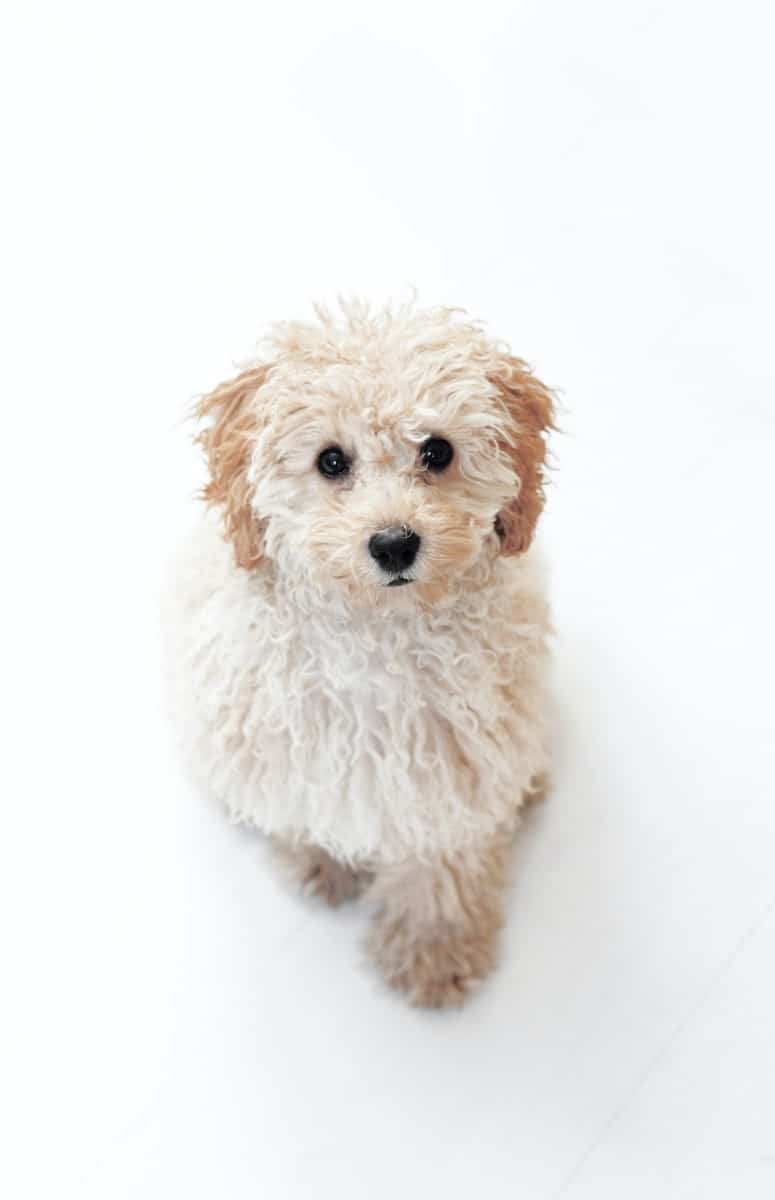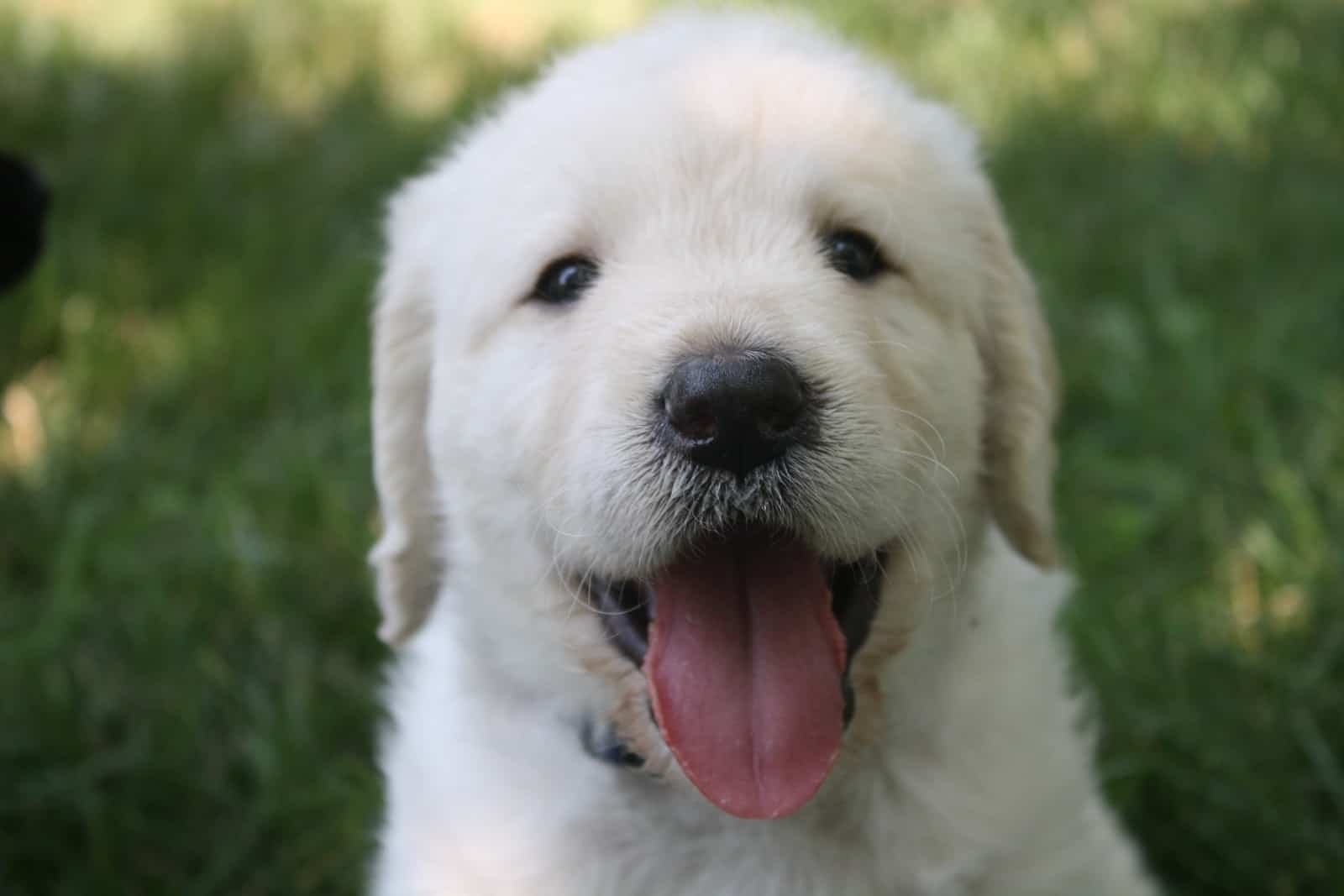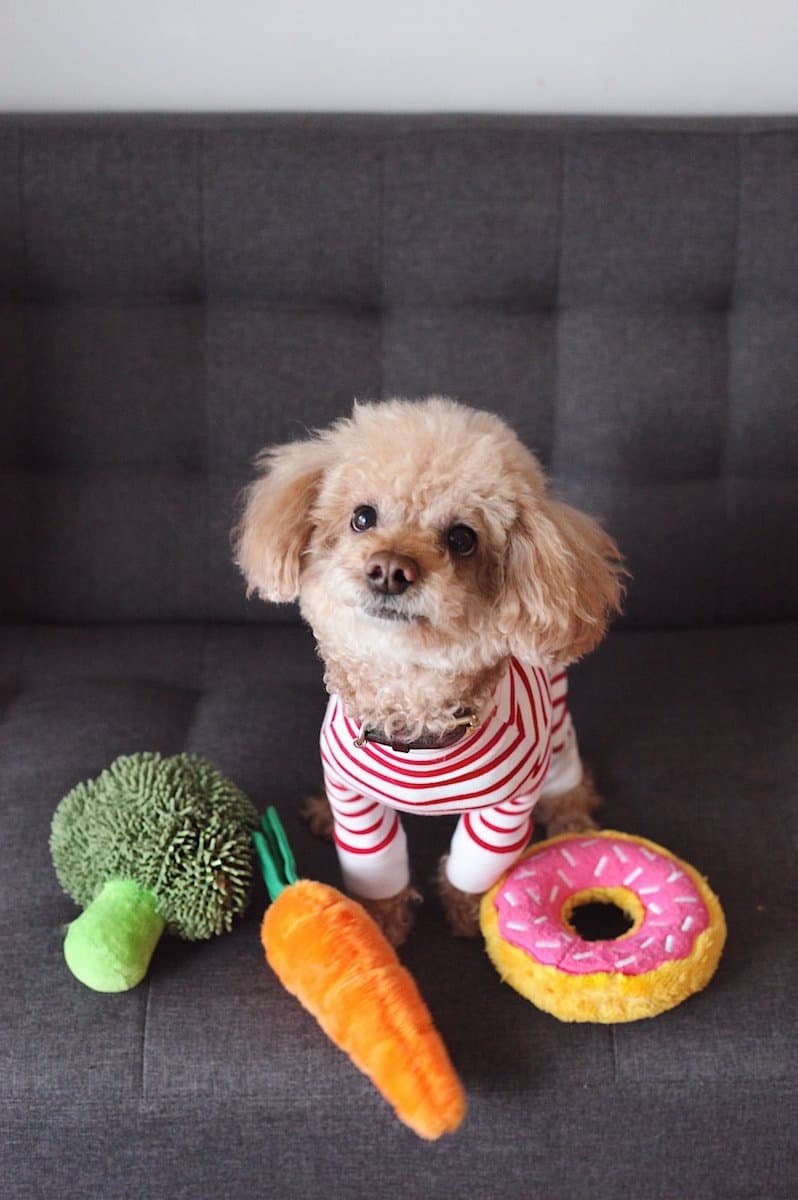Choosing the right food for your poodle’s dietary needs is crucial to ensure that your furry friend stays healthy and happy. As a poodle owner, you want to make sure that your dog’s diet is well-balanced and provides all the necessary nutrients. But with so many options available, it can be overwhelming to make the right choice. In this article, we will guide you through the process of selecting the best food for your poodle’s dietary needs.
Understanding your poodle’s dietary needs is essential before choosing the right food. Poodles come in different sizes, and each size has different nutritional requirements. Standard poodles, miniature poodles, and toy poodles have different calorie needs, and feeding them the wrong type of food can lead to health problems. Additionally, your poodle’s age, activity level, and overall health should also be taken into consideration when selecting the right food.
Key Takeaways:
- Understanding your poodle’s dietary needs is essential before choosing the right food.
- Poodles require specific nutrients in their diet, including proteins, fats, vitamins, and minerals.
- When choosing the right food for your poodle, consider their size, age, activity level, and overall health.
About This Guide
- Real Experience: Written by poodle enthusiasts with years of hands-on experience caring for and training poodles.
- Expert Reviewed: Content verified by certified dog trainers and veterinary professionals.
- Fact-Checked: Information sourced from the AKC, veterinary journals, and breed specialists.
- Last Updated: November 2025
Understanding Poodle’s Dietary Needs
As a responsible poodle owner, it’s crucial to understand your furry friend’s dietary needs. Feeding your poodle a well-balanced diet can help maintain their health, active lifestyle, and metabolism. In this section, we’ll discuss the importance of balanced nutrition and the role of age and activity level in determining your poodle’s dietary needs.
Importance of Balanced Nutrition
Poodles need a diet that is rich in proteins, but their diet also needs to have grains, vegetables, and fruits, which are good sources of fats, fiber, vitamins, and minerals. A balanced diet can help maintain your poodle’s energy levels, promote healthy digestion, and support their immune system.
When choosing your poodle’s food, it’s essential to read the labels and ingredients carefully. Look for high-quality dog food that meets the Association of American Feed Control Officials (AAFCO) standards. AAFCO is a voluntary membership association that sets nutritional standards for pet food and feed ingredients.
Role of Age and Activity Level
Your poodle’s age and activity level play a significant role in determining their dietary needs. Puppies have different nutritional needs than adult dogs, and senior dogs have different needs than younger adults. It’s essential to choose the right food for your poodle’s age to ensure that they receive the right amount of nutrients.
More active dogs require more calories and different nutrients than less active ones. If your poodle is highly active, they need more protein and fat to maintain their energy levels and support their muscles. On the other hand, if your poodle is less active, they need fewer calories and less fat to maintain a healthy weight.
In conclusion, understanding your poodle’s dietary needs is crucial for maintaining their health and well-being. A balanced diet that meets their nutritional needs can help support their active lifestyle and promote healthy digestion. By considering your poodle’s age and activity level, you can choose the right food that meets their specific dietary needs.
Key Nutrients for Poodles
When it comes to choosing the right food for your poodle, it’s important to consider their dietary needs. Poodles require a balanced diet that includes the right amounts of proteins, fats, vitamins, minerals, carbohydrates, and fiber. In this section, we’ll discuss the key nutrients that your poodle needs and the benefits they provide.
Proteins and Fats
Proteins and fats are essential for your poodle’s health. They provide energy and help build and repair tissues. Poodles should eat a high-quality protein-rich diet such as chicken, beef, turkey, pork, duck, or fish. Fats are also important for your poodle’s health, and they help keep their skin and coat healthy. Omega-3 and omega-6 fatty acids are essential fats that your poodle needs, and they can be found in foods such as fish, flaxseed, and canola oil.
Vitamins and Minerals
Vitamins and minerals are important for your poodle’s overall health and well-being. They help maintain healthy bones, teeth, and muscles, and they support the immune system. Poodles need vitamins A, B, C, D, E, and K, as well as minerals such as calcium, phosphorus, and potassium. These nutrients can be found in foods such as fruits, vegetables, and whole grains.
Carbohydrates and Fiber
Carbohydrates and fiber are important for your poodle’s digestion and energy levels. They provide the necessary glucose for energy and help regulate blood sugar levels. Poodles can benefit from carbohydrates such as rice, pumpkin, and sweet potatoes. Fiber can be found in foods such as fruits, vegetables, and whole grains, and it helps keep your poodle’s digestive system healthy.
In summary, a balanced diet that includes the right amounts of proteins, fats, vitamins, minerals, carbohydrates, and fiber is essential for your poodle’s health and well-being. By providing your poodle with the right nutrients, you can help ensure that they live a long and healthy life.
Choosing the Right Dog Food
Choosing the right dog food for your Poodle can be overwhelming. With so many options available, it’s important to understand what to look for in a dog food and how to read food labels. In this section, we’ll discuss the differences between dry and wet dog food and how to understand food labels.
Dry Food Vs Wet Food
Dry dog food, also known as kibble, is the most commonly used type of dog food. It is convenient, easy to store, and has a longer shelf life than wet food. Kibble is also good for maintaining healthy teeth and gums as it helps to scrape away plaque and tartar. However, some dogs may find it difficult to chew and digest.
Wet dog food, on the other hand, is more palatable and easier to digest than dry food. It contains more moisture, which can help keep your Poodle hydrated. Wet food is also a good option for dogs with dental issues or those who have trouble chewing. However, it has a shorter shelf life and can be more expensive than dry food.
When choosing between dry and wet dog food, consider your Poodle’s dietary needs, preferences, and any health concerns. Some pet owners prefer to mix both dry and wet food to provide their dog with a variety of textures and flavors.
Understanding Food Labels
When reading food labels, it’s important to look for high-quality ingredients that are appropriate for your Poodle’s dietary needs. The first ingredient listed should be a high-quality source of protein, such as chicken, beef, or fish. Avoid dog foods that contain fillers, by-products, or artificial preservatives.
Look for dog foods that are labeled as “complete and balanced,” which means they contain all the necessary nutrients your Poodle needs to maintain good health. The Association of American Feed Control Officials (AAFCO) sets standards for pet food labeling, so look for dog foods that meet AAFCO standards.
It’s also important to consider your Poodle’s age, size, and activity level when choosing a dog food. Puppies and senior dogs have different nutritional needs than adult dogs, and larger dogs may require more calories than smaller dogs. Consult with your veterinarian to determine the best dog food for your Poodle.
In conclusion, choosing the right dog food for your Poodle can be a daunting task, but understanding the differences between dry and wet dog food and how to read food labels can make the process easier. Consider your Poodle’s dietary needs, preferences, and any health concerns when making your decision. Remember to consult with your veterinarian to determine the best dog food for your Poodle.
Best Ingredients for Poodle’s Food
Choosing the right food for your Poodle can be challenging, but it’s essential to ensure they receive the necessary nutrients to maintain their health. The best food for your Poodle should contain a balance of protein, carbohydrates, and fats. In this section, we’ll explore the best ingredients for your Poodle’s diet, including meat and poultry, vegetables and fruits, and grains.
Meat and Poultry
Meat and poultry are excellent sources of protein for your Poodle. Chicken, beef, fish, lamb, and pork are all great options. When choosing meat for your Poodle, opt for lean cuts to avoid excessive fat intake. Eggs are another excellent source of protein for Poodles, and they’re easy to digest.
Vegetables and Fruits
Vegetables and fruits are essential sources of vitamins and minerals for your Poodle. Peas, spinach, carrots, potatoes, and sweet potatoes are all great options. Blueberries and apples are excellent sources of antioxidants, which can help boost your Poodle’s immune system. Kale is also a great option, as it’s rich in vitamins and minerals.
Grains
Grains are a good source of energy for your Poodle. Rice, corn, and barley are all great options. However, some Poodles may have allergies or sensitivities to grains, so it’s essential to monitor your Poodle’s reaction to their food. If your Poodle has a grain allergy, consider grain-free options.
When choosing the best food for your Poodle, it’s essential to consider their individual needs, such as age, size, and activity level. Consult with your veterinarian to determine the best diet for your Poodle.
Special Dietary Considerations
As a responsible poodle owner, it is important to consider your furry friend’s unique dietary needs. Some poodles may have special dietary considerations due to health conditions or dietary restrictions. In this section, we will discuss the special dietary considerations for poodles and how to choose the right food for them.
Poodles with Health Conditions
If your poodle has a health condition, it is important to consult with your veterinarian to determine the best diet for them. For example, poodles with sensitive stomachs may benefit from a limited ingredient diet that excludes common allergens such as chicken, beef, and grains. Poodles with bloat may benefit from a diet that is low in fat and easily digestible. Poodles with hip dysplasia may benefit from a diet that is high in protein and joint-supporting nutrients such as glucosamine and chondroitin.
Poodles with Dietary Restrictions
If your poodle has dietary restrictions, it is important to choose a food that meets their specific needs. For example, poodles with obesity may benefit from a weight management formula that is low in calories and high in fiber to help them feel full. Poodles with weight gain may benefit from a high-calorie formula that is rich in protein and healthy fats. Poodles with dietary restrictions may also benefit from a grain-free or gluten-free formula if they have allergies or sensitivities.
When choosing a food for your poodle with special dietary considerations, it is important to read the label carefully and look for high-quality ingredients. Look for a food that lists a high-quality source of animal protein as the first ingredient, such as chicken, beef, or fish. Avoid foods that contain fillers and by-products, as these can be difficult for your poodle to digest and may not provide the nutrients they need.
In conclusion, poodles with special dietary considerations require special attention and care when it comes to their diet. By consulting with your veterinarian and choosing a high-quality food that meets their specific needs, you can help ensure that your furry friend stays healthy and happy for years to come.
Feeding Your Poodle
Feeding your poodle is an essential aspect of their overall health and wellbeing. As a poodle owner, it is your responsibility to ensure that your furry friend’s dietary needs are met. Proper nutrition is crucial for their growth, development, and longevity. In this section, we will discuss meal planning, treats, and snacks to help you choose the right food for your poodle’s dietary needs.
Meal Planning
When it comes to meal planning for your poodle, it is essential to consider their age, weight, activity level, and overall health. Poodle puppies have different dietary needs than adult poodles. As a general rule, puppies require more calories, protein, and fat than adult poodles to support their growth and development.
Adult poodles, on the other hand, require a well-balanced diet that provides adequate nutrition to maintain their health and energy levels. A high-quality dog food that contains a balanced ratio of protein, fat, and carbohydrates is an excellent choice for adult poodles.
To determine the right amount of food to feed your poodle, refer to the feeding guidelines on the dog food package. However, keep in mind that these guidelines are just a starting point and may need to be adjusted based on your poodle’s individual needs.
Treats and Snacks
Treats and snacks are an excellent way to reward your poodle for good behavior or to provide them with a little extra nutrition. However, it is essential to choose treats that are healthy and appropriate for your poodle’s dietary needs.
When selecting treats for your poodle, look for those that are low in calories, fat, and sugar. Avoid treats that contain artificial colors, flavors, or preservatives, as these can be harmful to your poodle’s health.
You can also choose to make your own treats for your poodle using healthy ingredients such as lean meats, vegetables, and fruits. This way, you can control the ingredients and ensure that your poodle is getting a healthy and nutritious snack.
In conclusion, feeding your poodle a well-balanced diet that meets their nutritional needs is essential for their overall health and wellbeing. By following the guidelines discussed in this section, you can ensure that your poodle is getting the right amount of food and treats to support their growth, development, and longevity.
Conclusion
Choosing the right food for your poodle is crucial for their overall health and well-being. A balanced and healthy diet will ensure that your poodle has strong bones, a well-maintained skeletal muscle system, a shiny coat, a strong immunity, good digestion, and a perfect sleep cycle.
When selecting dog food, make sure to read the labels and decipher ingredient lists to choose high-quality dog food that meets your poodle’s specific needs. Look for food that is rich in protein, vitamins, and minerals. Avoid food that contains fillers, artificial preservatives, and by-products.
It is also important to consider your poodle’s size, age, and activity level when selecting dog food. Puppies need more calories and nutrients for growth, while senior dogs may require a diet tailored to their aging needs. Poodles come in various sizes, from toy to standard, and some brands offer size-specific formulas to cater to the unique needs of each size.
In addition to a healthy diet, regular exercise is also important for your poodle’s overall health and well-being. Poodles are intelligent and active dogs that love to retrieve and swim. Make sure to provide them with plenty of opportunities to exercise and play.
In conclusion, choosing the right food for your poodle is crucial for their overall health and well-being. By selecting high-quality dog food that meets their specific needs and providing them with regular exercise, you can ensure that your poodle lives a long and healthy life.
Frequently Asked Questions
If you’re a poodle owner, you might have a lot of questions about what your furry friend can and can’t eat. Here are answers to some frequently asked questions about poodle dietary needs.
What is the best food bowl for a poodle?
When it comes to choosing a food bowl for your poodle, there are a few things to keep in mind. Look for a bowl that is the appropriate size for your poodle, and make sure it is made of a non-toxic material. Stainless steel and ceramic are good options. Avoid plastic bowls, as they can harbor bacteria and cause skin irritation in some dogs.
What can toy Poodles eat?
Toy poodles have unique dietary needs, and it’s important to choose a food that is specifically formulated for small breeds. Look for a food that is high in protein and fat, and low in carbohydrates. Avoid foods that contain fillers like corn, wheat, and soy, as these can be hard for toy poodles to digest.
What is the best diet for poodles?
The best diet for your poodle will depend on a variety of factors, including their age, activity level, and any health issues they may have. In general, poodles thrive on a diet that is high in protein and fat, and low in carbohydrates. Look for a food that contains high-quality ingredients, like meat, fish, and vegetables.
Do poodles need high protein food?
Yes, poodles need a diet that is high in protein. Protein is essential for building and repairing muscle tissue, and it also helps to support a healthy immune system. Look for a food that contains at least 25% protein.
How much should a poodle eat a day?
The amount of food your poodle needs will depend on their age, size, and activity level. As a general rule, adult poodles should eat 1 to 2 cups of food per day, while puppies should eat 1 cup of food per day. Be sure to consult with your veterinarian to determine the appropriate amount of food for your poodle.
When should I stop feeding my Standard Poodle puppy food?
Most standard poodles will reach their full size and weight by the time they are 12 months old. At this point, you can transition your poodle to an adult food. Look for a food that is specifically formulated for adult dogs, and be sure to make the transition gradually to avoid digestive upset.
When it comes to choosing a food bowl for your poodle, there are a few things to keep in mind. Look for a bowl that is the appropriate size for your poodle, and make sure it is made of a non-toxic material. Stainless steel and ceramic are good options. Avoid plastic bowls, as they can harbor bacteria and cause skin irritation in some dogs.
“}},{“@type”:”Question”,”name”:”What can toy Poodles eat?”,”acceptedAnswer”:{“@type”:”Answer”,”text”:”
Toy poodles have unique dietary needs, and it’s important to choose a food that is specifically formulated for small breeds. Look for a food that is high in protein and fat, and low in carbohydrates. Avoid foods that contain fillers like corn, wheat, and soy, as these can be hard for toy poodles to digest.
“}},{“@type”:”Question”,”name”:”What is the best diet for poodles?”,”acceptedAnswer”:{“@type”:”Answer”,”text”:”
The best diet for your poodle will depend on a variety of factors, including their age, activity level, and any health issues they may have. In general, poodles thrive on a diet that is high in protein and fat, and low in carbohydrates. Look for a food that contains high-quality ingredients, like meat, fish, and vegetables.
“}},{“@type”:”Question”,”name”:”Do poodles need high protein food?”,”acceptedAnswer”:{“@type”:”Answer”,”text”:”
Yes, poodles need a diet that is high in protein. Protein is essential for building and repairing muscle tissue, and it also helps to support a healthy immune system. Look for a food that contains at least 25% protein.
“}},{“@type”:”Question”,”name”:”How much should a poodle eat a day?”,”acceptedAnswer”:{“@type”:”Answer”,”text”:”
The amount of food your poodle needs will depend on their age, size, and activity level. As a general rule, adult poodles should eat 1 to 2 cups of food per day, while puppies should eat 1 cup of food per day. Be sure to consult with your veterinarian to determine the appropriate amount of food for your poodle.
“}},{“@type”:”Question”,”name”:”When should I stop feeding my Standard Poodle puppy food?”,”acceptedAnswer”:{“@type”:”Answer”,”text”:”
Most standard poodles will reach their full size and weight by the time they are 12 months old. At this point, you can transition your poodle to an adult food. Look for a food that is specifically formulated for adult dogs, and be sure to make the transition gradually to avoid digestive upset.
“}}]}






